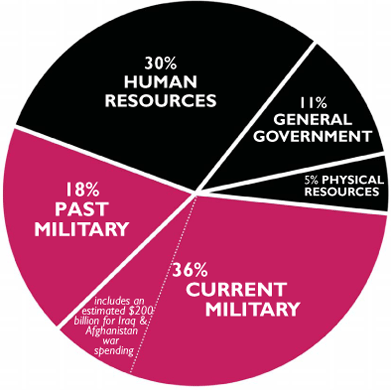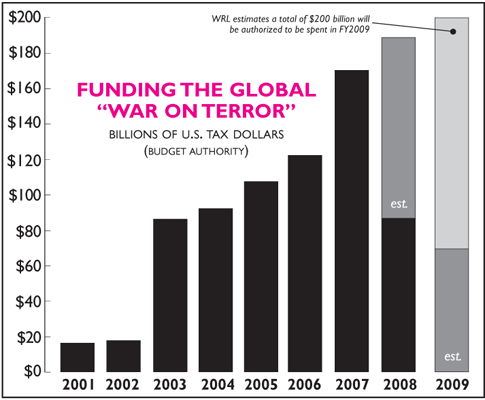Your one-stop shop for news, views and getting clues. I AM YOUR INFORMATION FILTER, since 2006.
Friday, July 30, 2010
Teabagging libertarianism and Christianity don't mix
ADL is a sham that supports bigotry when convenient
Obama tougher on immigration enforcement than Dubya
Sunday, July 25, 2010
Sanders: Estate tax on super-rich lowers deficit, prevents hereditary oligarchy
Virtual hotties threaten U.S. national security

Despite some patently obvious red flags — such as noting that the 25-year-old Sage had worked professionally for 10 years — the scheme worked. The connections to Sage, who was depicted as a real-life Abby Scuito, a fictional character in CBS's NCIS television series, were established in less than a month.Many friends freely shared personal information and photos, invited the fictional threat analyst to conferences and asked her to review documents. Some "friends" at major companies, including Google and Lockheed Martin, even expressed interest in hiring her, he noted.
Pitt: 'Dog-whistle politics' incite violence
Dog-whistle politics, also known as the use of code words, is a type of political campaigning or speechmaking employing coded language that appears to mean one thing to the general population but has a different or more specific meaning for a targeted subgroup of the audience. The term is an analogy to dog whistles built in such a way that humans cannot hear them due to their high frequency, but dogs can.
Germany has a better way
Wednesday, July 21, 2010
Ratigan: 'Banksters' rediscover ideology on unemployment
And for some reason the bank bailouts did not? But even letting bygones be bygones, I have a suggestion -- let's use clawbacks to pay for unemployment, considering this financial crisis (a) was caused by these people and (b) is why there are no jobs.
Well, bailing out these banks is even worse -- it's the government literally paying people ungodly sums to destroy our country. Like I've said before, there's a reason why banking is an unpaid job in Monopoly -- it is basically a utility rendered unprofitable by modern technology. These bailed-out banks are dangerous casinos gambling with the well-being of America, and America is losing.
Really? Well then it's done a terrible job of keeping people working, because unemployment is actually getting worse. The only place it's actually saved "us" is in the imaginary crony-ist utopia of those who benefited. Their jobs plan is a lucky few of you cleaning the pools built with their $145 billion in 2010 bonuses.
I suggest you all familiarize yourselves with THE BIG TARP LIE... and make sure the politicians and media that continue to spout it become familiar as well.
But I was lied to about TARP!
Then do your job. Those people who lied to you were often under oath. They should be investigated and put in jail if found guilty.
BANKSTER PARTY
Robert Bennett [B-UT]
Christopher Bond [B-MO]
Richard Burr [B-NC]
Saxby Chambliss [B-GA]
Thomas Coburn [B-OK]
Bob Corker [B-TN]
John Cornyn [B-TX]
John Ensign [B-NV]
Lindsey Graham [B-SC]
Charles Grassley [B-IA]
Judd Gregg [B-NH]
Orrin Hatch [B-UT]
Kay Hutchison [B-TX]
John Isakson [B-GA]
Jon Kyl [B-AZ]
Richard Lugar [B-IN]
John McCain [B-AZ]
Mitch McConnell [B-KY]
Lisa Murkowski [B-AK]
Ben Nelson [B-NE]
John Thune [B-SD]
George Voinovich [B-OH]
Friday, July 16, 2010
Where your income tax really goes
 Total Outlays (Federal Funds): $2,650 billion
HOW THESE FIGURES WERE DETERMINED
These figures are from an analysis of detailed tables in the "Analytical Perspectives" book of the Budget of the United States Government, Fiscal Year 2009. The figures are federal funds, which do not include trust funds — such as Social Security — that are raised and spent separately from income taxes. What you pay (or don't pay) by April 15, 2008, goes to the federal funds portion of the budget. The government practice of combining trust and federal funds began during the Vietnam War, thus making the human needs portion of the budget seem larger and the military portion smaller. *Analysts differ on how much of the debt stems from the military; other groups estimate 50% to 60%. We use 80% because we believe if there had been no military spending most (if not all) of the national debt would have been eliminated. For further explanation, please see box at bottom of page. | ||||||||||||||||||||||||
| ||||||||||||||||||||||||
Thursday, July 15, 2010
Polls: Americans say continue unemployment benefits
By Arthur Delaney
July 14, 2010 | Huffington Post
Fifty-two percent of voters told CBS that Congress should extend unemployment benefits "even if it means increasing the budget deficit," including 35 percent of Republicans. Sixty-two percent of registered voters told ABC Congress should extend benefits despite concerns that doing so "adds too much to the federal budget deficit."
Tuesday, July 13, 2010
Fish getting high on our pee
Monday, July 12, 2010
U.S. soldiers in Afghanistan make peace, not war - DTWF?!?
Senate GOP leader: NO to unemployment benefits, YES to tax cuts for rich
Sunday, July 11, 2010
Frank and Ron Paul: Cut Pentagon by $1 trillion
Gov's to Obama: Brother, can you spare a dime?

Saturday, July 10, 2010
Gen. Casey let slip the truth: Another 10 years at war
Sirota: High taxes = high revenue = high growth
Taibbi: Newzbabe reveals why we know nothing about Afghan snafu

"What I find is the most telling thing about what Michael Hastings said in your interview is that he talked about his manner as pretending to build an illusion of trust and, you know, he's laid out there what his game is… That is exactly the kind of damaging type of attitude that makes it difficult for reporters who are genuine about what they do, who don't — I don't go around in my personal life pretending to be one thing and then being something else. I mean, I find it egregious that anyone would do that in their professional life."
"Michael Hastings, if you believe him, says that there were no ground rules laid out. And, I mean, that just doesn't really make a lot of sense to me… I mean, I know these people. They never let their guard down like that. To me, something doesn't add up here. I just — I don't believe it."
Another Repug begging for a bullet in Obama's head
Friday, July 9, 2010
Rich defaulters: They're 'strategic;' you're still 'irresponsible'
Hey, if America's rich supermen think it's morally OK to do, then you can too. Think like a tycoon and walk away from your underwater home!
Biggest Defaulters on Mortgages Are the Rich
By David Streitfeld
July 8, 2010 | New York Times
URL: http://www.nytimes.com/2010/07/09/business/economy/09rich.html?pagewanted=1&source=patrick.net&_r=2
Thursday, July 8, 2010
In U.S., peace just isn't taken seriously
Reich: Parallels of 1929 and 2008
BHO's socialist export & trade liberalization drive
There goes comrade Barack again, trying to destroy capitalism and turn America socialist.
Can't you all see he hates our way of life?!
UPDATE (07.09.2010): Robert Reich said that if all countries follow America's lead it could cause a return to Smoot-Hawley, trade wars, and protectionism. And who has enough money to buy our stuff anyway, especially if American consumers aren't buying theirs?
Expanding Exports To Stimulate The Economy
By Scott Horsley
July 7, 2010 | All Things Considered, NPR
Wednesday, July 7, 2010
Tea-formers: Repugs in disguise

"The Perot voters were a disparate group, ideologically diverse, with generally secular views. The tea party movement is far more cohesive. If anything, it is simply an adjunct of the conservative wing of the Republican Party, even if many of its supporters say they hold no particular allegiance for the GOP and are critical of party leadership."
Monday, July 5, 2010
Born on the 4th of July, killed on May 27th

Tea Party Unity convention moves back date due to lack of interest
- "it would more advantageous to hold the convention in the middle of October just prior to the November elections."
- "The heat in Las Vegas in July is keeping many who would like to participate from attending."
- "We have also received numerous emails from people who were forced to decide between family vacations and attending the convention."




